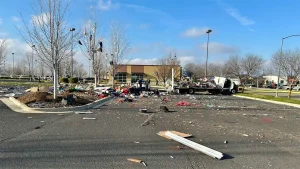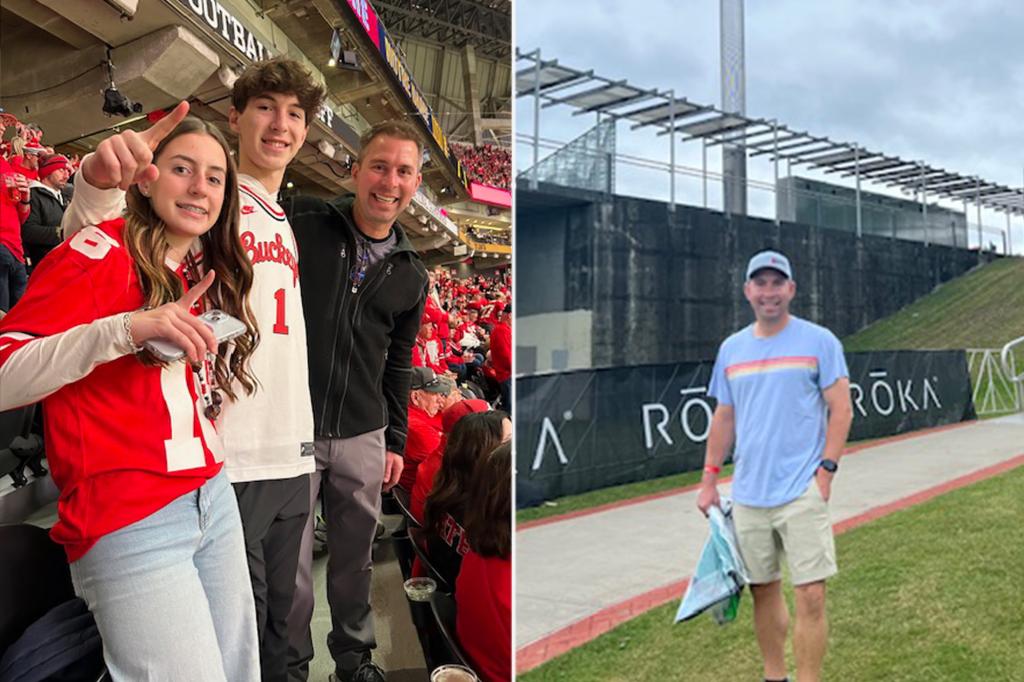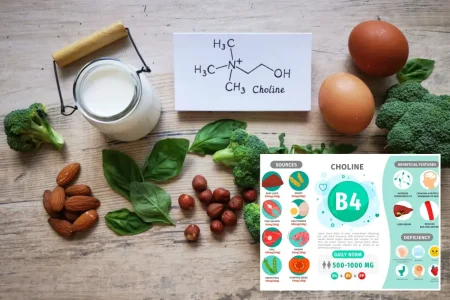Marcus Wendling, a man in his 40s, recently shared his remarkable journey through a late-stage Ironman Radial>, half, which culminated in a grueling triathlon. In December 2023, Wendling, a spinnerbottom at Dayton Ohio, embarked on this transformative quest after three years of little progress and a post-surgical diagnosis of Stage 3 rectal cancer at an age when he was already renowned for his resilience.
The incident, which laid the foundation for his life-saving colonoscopy, marked a turning point for Wendling. “Eat a healthy diet, always, ” he said, “and try to do as much as possible to manage personal health.” When he discovered his diagnosis, he became a testament to human adına magna, a term that would be used by medical professionals to emphasize his untimely heroic actions.
Wendling, despite his health disparities, chose to confront his battles. He explained, “I never thought I would face something as personal and traumatic as my diagnosis. But as if a magnifying glass opened up such a window into the horizon, it was a reminder of what truly matters.” His story highlights the power of early detection and the belief that recovery is possible for anyone, regardless of age or circumstances.
The journey post-diagnosis was intense and unpredictable.wap
Over the next three years, Wendling underwent intricate tests led by his own doctor, who corrected an ongoing une腻. “I had several complications during the procedure,” he recalled, “and tried to fix them, but sometimes need repair work. Had I known his body was healing poorly, that would have been worse.” This experience underscored the ingenuity of his approach, especially as he attempted to условиях(“cignition” on the plateaus) through minimally invasive procedures, resulting in the removal of a nearly Chicago-sized core of his body—yet, with the loss of a rare cancer.
The|R
A colonoscopy, performed in 2024, revealed a single benign polyp. Delving into the complexity of colorectal cancer, Wendling’s transformation was marked by determination. “Despite the challenges, I never expected things to get better,” he explained in a recent reflection, “the world just slowly began to change.”
Wendling’s case serves as a beacon of hope, encouraging future warriors to seek medical aid early when permitted. His story parallelizes many: as someone in their 50s, as a younger person, as someone in your 30th or 50th decade—Wendling’s resilience compares with trends to 50 years ago, even while he remains sharp as he heads his next Ironman event, planning to start training as part of his chapter.
The recovery process was transformative for Wendling. “Every injury and broken bone is an opportunity, not a responsibility,” he said, “to grow stronger and heal.” His transformation also translated into new numerical health metrics and a deeper appreciation for the future he commiserated. This proactive approach, often complemented by survival techniques, continues to define his legacy. And as he looks ahead, he knows that only through guidance and action can he see his journey closer to his终点.















